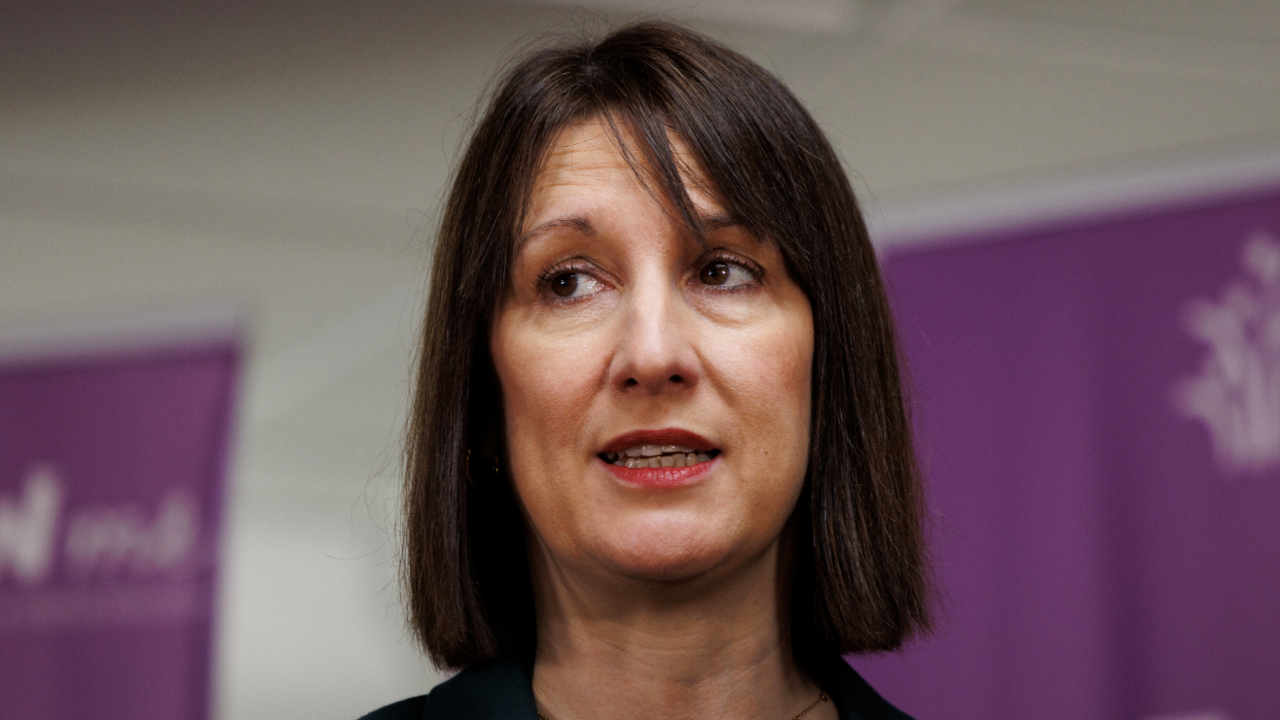Reeves vows to cut 'waste' in spending review

- Published
The chancellor has said a crackdown on government "waste" will ensure key public services can be prioritised for funding.
Rachel Reeves said departments would be asked to identify 5% "efficiency savings" as part of a review to set their budgets for the coming years.
The review, to conclude next June, will see ministers haggle for money as Labour sets the political tramlines for the next election.
But the Conservatives have poured scorn on the suggestion Labour would make the public sector more efficient.
No plan for more tax rises but we can't rule it out - Starmer
- Published6 December 2024
Six takeaways from Keir Starmer's 'plan for change'
- Published5 December 2024
On Tuesday, Reeves said she wanted to find "efficiency savings within government spending of 5%" as part of the review.
It is understood that departments will be asked to reach this figure over the three-year review period, and will be able to reallocate money saved within their budgets.
The Treasury has told departments that they will be expected to prioritise spending on policies that contribute towards the "plan for change" set out by the prime minister in a speech last week.
This set "milestones" to deliver before the next election in areas such as building more homes, clearing hospital backlogs and ensuring children are ready for school.
The Treasury says the chancellor will "work with departments to prioritise spending that supports the milestones to deliver the plan", indicating that some areas not deemed a priority will be downgraded.
However, the government has already committed to increased funding for some areas, including defence, where it will spell out a timeframe to hike spending to 2.5% of national income in the spring.
Reeves said that although overall departmental spending would be going up, it was important to crack down on "wasteful spending" within public services.
"It's through finding those efficiency savings that we'll have the money to spend on the priorities of the British people," she added.
Speaking to BBC 5 Live 's Matt Chorley, she said the situation was very different to the austerity set out under the 2010 Conservative-Liberal Democrat government.
"The difference here is we are not asking for cuts because we've set real term increases to government spending, George Osborne cut government spending."
Government spending
Current spending plans mean that ministers will face tough choices over how to allocate spending in the later years of this Parliament, in the run-up to the next general election which has to take place by 2029.
The chancellor set detailed departmental spending plans for next year at the Budget, as well as overall funding levels for the three years after that.
Now, the Treasury will set departments' day-to-day spending between 2026 and 2029, as well as investment budgets for the next five years.
Overall government day-to-day spending is set to rise by 4.3% in real terms this year, with the chancellor making tax rises worth £40bn.
But this is set to slow to a real-terms rise of 2.6% next year, followed by 1.3% rise in the three years that follow.
This is not a Budget we want to repeat, says Reeves
- Published30 October 2024
Budget 2024: Key points at a glance
- Published30 October 2024
The Treasury has said figures from think tanks, academics and the private sector will be drafted in to scrutinise departments' spending plans.
Those to be brought in include former senior management of Lloyd's Banking Group, Barclays Bank and the Co-operative Group.
The department has set up a new internal unit, branded the Office for Value for Money, to advise the chancellor on where savings should be made.
The unit, housing around 20 civil servants, will be headed up by David Goldstone, who has previously worked as an executive on the London Olympics, Parliament's restoration and HS2 high speed rail.
Shadow Treasury minister Richard Fuller said: "Delivering value for money for the taxpayer is a noble goal.
"But Rachel Reeves' record so far has been to dole out inflation busting pay rises to Labour's union paymasters whilst mandating nothing in return, and making no reforms to public sector productivity or welfare spending."
Liberal Democrat Treasury spokesperson Daisy Cooper urged the government not to make cuts to social care, warning that it would be a "false economy that will only put people at risk and damage the public finances".
'Tough stuff'
In her Budget in October, the chancellor announced £40bn in tax rises, much of which will hit business.
At the time, Reeves said it was "not the sort of Budget we would want to repeat" but argued it was necessary to fill a £22bn "black hole" in the public finances this year left by the previous Conservative government.
She said she will not need to raise taxes to "top up" public spending, without ruling such a move out completely.
Last week, the prime minister said: "I don't want to suggest we're going to keep coming back for more because that isn't the plan.
"What I can't do is say to you there are no circumstances unforeseen in the future that wouldn't lead to any change at all."
"If you look at Covid and Ukraine," Sir Keir added, "everyone knows there are things we can't see now, but I can tell you our intention was to do the tough stuff in that Budget, not keep coming back."

Sign up for our Politics Essential newsletter to read top political analysis, gain insight from across the UK and stay up to speed with the big moments. It'll be delivered straight to your inbox every weekday.